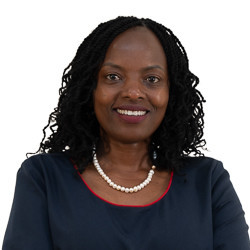South Sudan
The Context
On 9 July 2011, the Republic of South Sudan became the world’s newest nation. In a January 2011 referendum on independence, 99 per cent of voters in the south of Sudan had favoured separation from the north.
Even before independence, the authorities in the south were carrying out development activities, but despite some achievements, many daunting challenges remain. The 21-year Sudanese civil war took an enormous human toll and left South Sudan impoverished.
South Sudan has the dual challenge of dealing with the legacy of conflict and continued instability, along with huge development needs. More than half the population lives below the international poverty line.
Most poor people in the country live in rural areas, which are home to 84 per cent of the population. The relationship between the Government of South Sudan in Juba and the Government of Sudan in Khartoum remains tense due to sporadic military clashes. And several key issues – including sharing of oil proceeds, border demarcation, cross-border trade and citizenship – have yet to be resolved between the two states. Following the signing of a new peace deal on power sharing arrangements on 5 August 2018 which was followed by the now signed Revitalized Agreement in Addis Ababa on 12 September 2018,it is hoped that peace will be restored.
Rural poverty in South Sudan is linked to the prolonged conflict, population displacement, poor coverage of basic services, geographic isolation, lack of skilled labour and low productivity.
The result is entrenched poverty and limited options for social and economic mobility. Agriculture has been identified as the main engine of economic and rural development.
The country is very young with two-thirds of the population under the age of 30.
The Strategy
IFAD is committed to maintaining and strengthening its presence in South Sudan, working with the Government and other development partners. Agriculture is a crucial area for coordinated interventions, given its economic potential as an alternative to oil production, a vehicle for job creation for youth and its proven capacity to reduce poverty and increase food security.
Maximizing the contribution of agriculture to economic growth in South Sudan requires improving smallholder farmers’ productivity and access to markets, and bolstering distribution systems.
The overall goal of IFAD in South Sudan will be to contribute to the revival of the agricultural and livestock sectors, in order to improve the rural people's livelihoods through increased food and nutrition security and resilience. Our strategy stresses the importance of settling communities that have been in continuous movement for over 20 years due to conflicts and natural hazards. Better seed varieties, improving the nutritional content of food crops, effective pest management and other scientific and technological improvements also are needed to boost productivity.
Key areas of strategic focus will include:
- increasing crop production by expanding areas under cultivation;
- strengthening government institutions;
- developing community-level capacity to improve crop production, animal resource management and water use;
- making improved agricultural inputs available to vulnerable households through market-based systems;
- expanding smallholder farmers’ access to appropriate technologies, markets and community-owned infrastructure; and
- contributing to self-reliance and the creation of social capital in rural areas.
After more than two decades of conflict, however, achieving these objectives is challenging. For example, there is wide support for building rural roads, but there are many obstacles, including lack of resources, high costs and limited local capacity for road construction, operation and maintenance.
To set evidence-based priorities for agricultural investment in South Sudan, the Government and its partners need more information on farms and production practices.
To this end, IFAD grants have supported an analysis of rural resilience and livelihoods by the Food and Agriculture Organization of the United Nations, as well as poverty mapping by the International Center for Agricultural Research in the Dry Areas. In addition, small grants from IFAD have supported two non-governmental organizations operating in South Sudan, BRAC and AMURT.
Country Facts
On 9 July 2011, the Republic of South Sudan became the world’s newest and Africa’s 55th nation.
Most of the country’s poor people live in rural areas, which are home to 84 per cent of the population.
